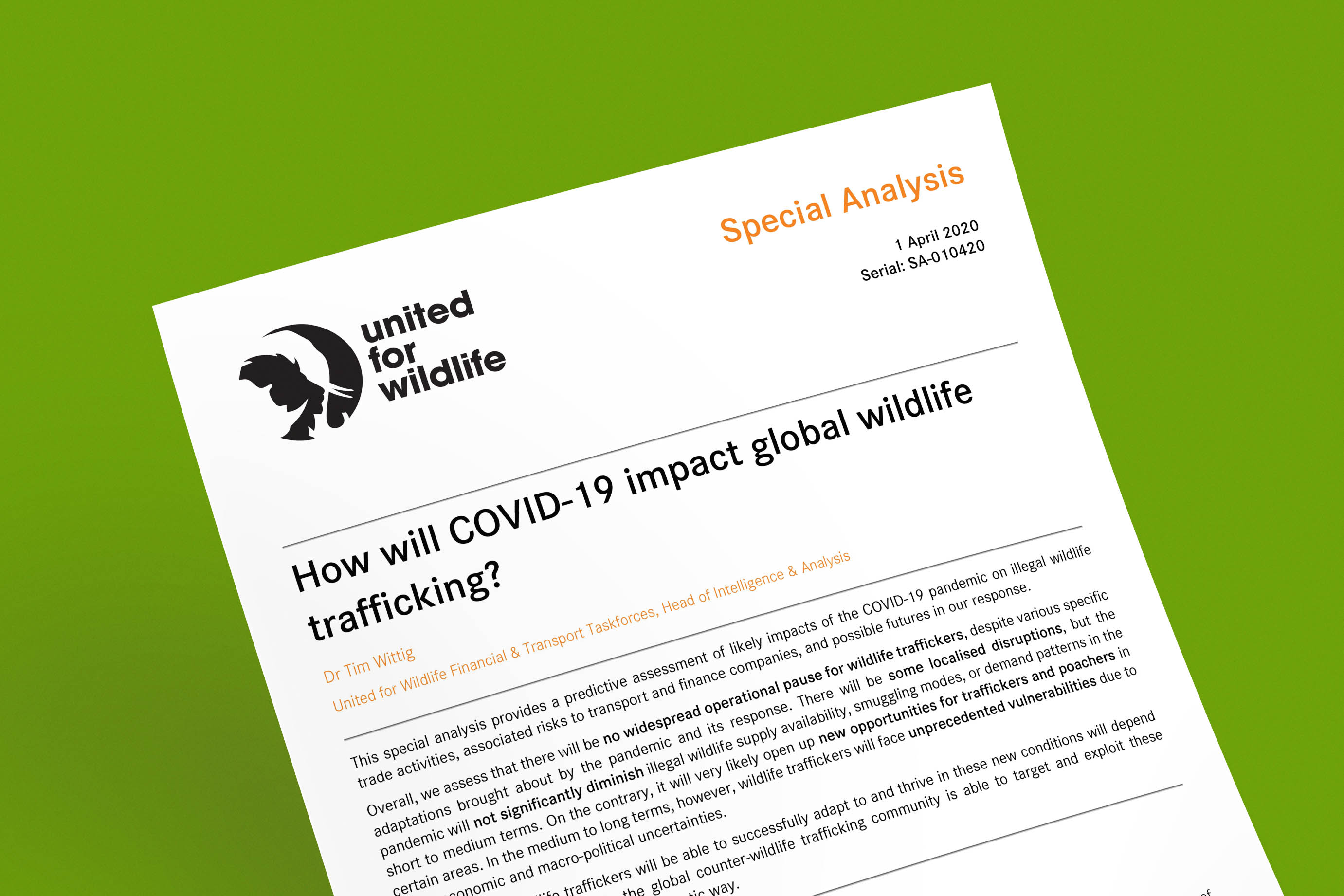Special analysis: How COVID-19 impacts global wildlife trafficking

The Basel Institute's intelligence team, in partnership with the United for Wildlife Taskforces, has issued a predictive assessment of impacts of the COVID-19 pandemic on illegal wildlife trade activities and associated risks to transport and finance companies.
Wildlife trafficking is predicted to adapt and continue, with some localised disruptions but no overall reduction in smuggling or the supply and demand for wildlife products. New opportunities for traffickers and poachers will likely arise. In the longer term, wildlife traffickers are vulnerable to macroeconomic and political uncertainties. To properly end illegal wildlife trade – as experts, citizens and politicians around the world agree is crucial to preventing another zoonotic disease outbreak – the global counter-wildlife trafficking community needs to target these vulnerabilities in a strategic and systematic way.
The assessment is a product for the United for Wildlife Transport and Financial Taskforces. These global taskforces, an initiative of The Royal Foundation of the Duke and Duchess of Cambridge, convene the world's leading transport companies and financial institutions committed to fighting illegal wildlife trade and preventing traffickers from exploiting commercial transport routes and financial systems. The Basel Institute's team operates the Taskforce Information Sharing System which, among other support, provides high-impact intelligence on wildlife trafficking to members of both Taskforces to enable them to take targeted action.
Around 250 representatives of financial and transport industry members reviewed and discussed the predictions at a special virtual Taskforce meeting on 8 April. Given the gravity of the current situation and the worldwide attention to illegal wildlife trade and its role in triggering the COVID-19 pandemic, the Taskforce leadership has decided to make this predictive assessment available publicly to all interested parties.
The predictions are based on analysis of open-source reporting, macro-level trends, and plausible future scenarios, as well as insights from finance and transport industry professionals and experts in the law enforcement and NGO arenas. Together, the predictions offer a window into a set of possible futures about how private industry and the conservation community can most effectively and impactfully respond to global wildlife trafficking during the COVID-19 crisis.
View and download the special analysis here. Feedback to the main author Tim Wittig is welcome.


